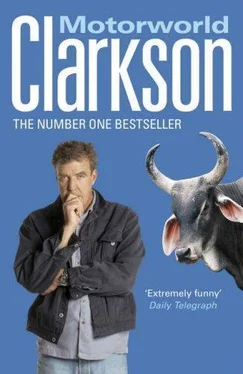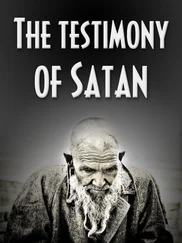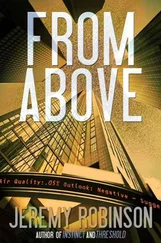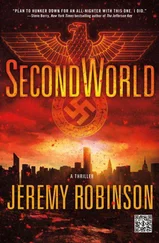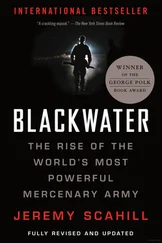Jeremy Clarkson - Motorworld
Здесь есть возможность читать онлайн «Jeremy Clarkson - Motorworld» весь текст электронной книги совершенно бесплатно (целиком полную версию без сокращений). В некоторых случаях можно слушать аудио, скачать через торрент в формате fb2 и присутствует краткое содержание. Город: London, Год выпуска: 2004, ISBN: 2004, Издательство: Penguin, Жанр: Прочая документальная литература, Юмористическая проза, на английском языке. Описание произведения, (предисловие) а так же отзывы посетителей доступны на портале библиотеки ЛибКат.
- Название:Motorworld
- Автор:
- Издательство:Penguin
- Жанр:
- Год:2004
- Город:London
- ISBN:978–0–141–90136–7
- Рейтинг книги:5 / 5. Голосов: 1
-
Избранное:Добавить в избранное
- Отзывы:
-
Ваша оценка:
- 100
- 1
- 2
- 3
- 4
- 5
Motorworld: краткое содержание, описание и аннотация
Предлагаем к чтению аннотацию, описание, краткое содержание или предисловие (зависит от того, что написал сам автор книги «Motorworld»). Если вы не нашли необходимую информацию о книге — напишите в комментариях, мы постараемся отыскать её.
Motorworld — читать онлайн бесплатно полную книгу (весь текст) целиком
Ниже представлен текст книги, разбитый по страницам. Система сохранения места последней прочитанной страницы, позволяет с удобством читать онлайн бесплатно книгу «Motorworld», без необходимости каждый раз заново искать на чём Вы остановились. Поставьте закладку, и сможете в любой момент перейти на страницу, на которой закончили чтение.
Интервал:
Закладка:
Rival outfits with silly names like the Ice Warriors fight for control of the high ground. And this is not Reggie and Ronnie Kray either. You can forget all about honour among thieves here. This is vicious like you simply would not believe.
Every year 600 people are shot to death in Detroit and, in that railway station, I very nearly became one of them.
The police had said we were mad to even think about going in there. ‘Not even that phoney accent is gonna save your ass. You go in there and you’ll come out in a body bag,’ said one cheery soul in a hexagonal hat.
But frankly, the British perception of gangland violence is some spotty eleven-year-old with a penknife. We could handle these American pussies, no problem at all.
It took about five minutes to find that we couldn’t. We’d just set the camera up when, from the minstrel’s gallery, a not-very-minstrel-like voice asked whether we were cops.
We were then ordered to stand still and advised that, if we moved, we would be shot repeatedly. And then killed.
I could have passed muster as a statue until, from behind one of the pillars, came this guy who was about fourteen feet tall and nine feet across. Also, he was brandishing what we later discovered was a ‘street sweeper’ — a machine gun that fires 12-bore shotgun cartridges.
He frisked us, checked out the camera equipment, listened quite politely while we explained we were from the BBC and then said he was going to check us out.
Now this puzzled me. I was still standing there, wondering if he had a hotline to John Birt, when a girl emerged from the shadows. She last knew what she was doing in 1976. Here was a person whose hair was green, whose nose sported sixteen silver rings and whose eyes had as much life to them as cardboard.
Her first words were odd. ‘You’re that guy off Top Gear , yeah?’ ‘Um yes,’ I replied, wondering where my royalty cheque was if they were showing it in America. Actually, that’s a lie. I was really wondering where the lavatory was because I was about four seconds away from shitting myself.
But then her face broke into a broad grin as she explained she’d once worked as a researcher on Newsnight and she ‘just luurrrved’ the BBC.
Within seconds, we were joined by an army of gangland down-and-outs, all clamouring for an interview. Christian, the least stoned and most eloquent, explained that things are pretty bad in downtown Detroit these days.
Had he been shot at? ‘What today? Yeah sure. I was down the gas station this morning and these guys came in. It was pretty ugly.’
So we are in danger then? ‘You sure are. If they want your trucks, they’re going to take ’em. If they want your camera, they’re gonna take it. If they want your shoes, you’d better hand ’em over, because if you don’t the results could be disappointing. No… the results could be catastrophic.’
We had a long chat, turned down several invitations to various parties and left. The police, waiting for us at the end of the drive, were impressed. ‘When you went in there we expected you to come out through an eleventh-floor window. How in the hell did you get talking to those guys? You ain’t even black,’ said one.
Observant bunch, the Detroit cops.
No, they really are. Two days later, we were being driven round an area of the city called Brush which had obviously just been on the receiving end of a B-52 strike. Not a single house was in one piece. Every car in every street was a wreck.
There’d been a drive-by shooting, two people were dead and our chauffeurs were out looking for suspects. It’s OK, that’s what they were paid to do. They were policemenists.
We were chatting about this and that, about how no one has a job because there are no jobs to be had, when one of them, Hal, suddenly asked if we’d like to see an arrest.
In the blink of an eye, the car had stopped, and two fifteen-year-olds were spread-eagled on the bonnet.
This would have made good footage but sadly, the Chevvy had child locks and we couldn’t get out without scrabbling over the front seats and tumbling into the street with my legs tangled up in the umbilical cord that links the camera to the sound equipment.
By the time we were ready to roll, Hal had pulled a small gun and some drugs from the suspects and radioed for back-up… which arrived just as the crowd started throwing stones at us.
Another guy was arrested and as he lay on the ground, his head pinned to the road by Hal’s shoe, his friend told cameraman Keith Schofield, ‘Get that on your camcorder, Johnnie Fucking Video.’
This was getting ugly and we already knew that everyone was packing heat. You can buy a gun in Detroit for less than half a dozen tomatoes and the statistics show that a gun is a lot more useful.
I must confess that I kept staring at the tiny pistol that had been confiscated earlier and was now lying on the passenger seat of the police car. Was it loaded? Where was the safety catch? Had anyone in the crowd started firing, you should be in no doubt that I’d have fired back.
And I’m the guy who had to lie in a cold room for three days after I once shot a sparrow with an air rifle.
Happily, we emerged from the confrontation in one piece, even though our Chrysler Town and Country people carrier had taken a direct hit.
Compared to Detroit, the rest of America is Trumpton. You ask an American if he’s ever been there and he’ll be too flabbergasted to answer. You can buy T-shirts elsewhere in the States which say things like ‘Don’t Mess With Me. I Have Friends In Detroit’ or ‘DETROIT — Where The Weak Are Killed And Eaten’.
That’s strange because, just 30 years ago, Detroit was the most vibrant city America had ever seen. The people were rich. The factories were humming. You could hear the buzz all round the world. So what turned the motor capital of the world into the murder capital of the world?
Well, way back at the dawn of automotive time, and seemingly quite by chance, a number of individuals set up shop in and around De Troit (it used to be French) making cars. A great many covered wagons had been built there and the city simply added the newfangled internal combustion engine.
This city was home base to Lincoln, Cadillac, Pontiac, Chevrolet, Ford, Mercury, Chrysler, Hudson, Plymouth, Buick, Dodge, Packard and Oldsmobile. It was The Motor City.
There were more car-makers than people and, to attract workers from elsewhere in the States, the pay was high. By the late fifties, the average industrial wage rate in America was $1.50 an hour but in Detroit they were getting $3.
You could start work in one factory on a Monday morning and, if you didn’t like it, catch the afternoon shift in another later that day.
Demand was phenomenal, too. These were the US boom years, before the oil crisis, Vietnam and Watergate, and everyone wanted a car: a big one with a V8 engine from Detroit. In the fifties and sixties, 97 per cent of all cars sold in America were made in America.
No car sums up the times better than the original 1964 Mustang. This two-door saloon was an adventurous departure, not only for Ford but for the whole car industry.
Until the Mustang came along, every car had a specific engine and a specific level of luxury. There was no choice. But with the ‘pony car’, as it became known, customers could choose what motor they wanted and even what body style — two-door saloon or convertible.
And there was an options list. You could go for bucket seats, for instance, or a limited slip differential or a rev counter. It could be a 6-cylinder shopping car or a V8 wind-in-the-hair tyre-shredder.
Ford guessed they were on to something with this new idea and reckoned they’d sell 100,000 Mustangs in the first twelve months. In fact, they sold 680,000 making it the fastest-selling car of all time — a record that’s never been beaten.
Читать дальшеИнтервал:
Закладка:
Похожие книги на «Motorworld»
Представляем Вашему вниманию похожие книги на «Motorworld» списком для выбора. Мы отобрали схожую по названию и смыслу литературу в надежде предоставить читателям больше вариантов отыскать новые, интересные, ещё непрочитанные произведения.
Обсуждение, отзывы о книге «Motorworld» и просто собственные мнения читателей. Оставьте ваши комментарии, напишите, что Вы думаете о произведении, его смысле или главных героях. Укажите что конкретно понравилось, а что нет, и почему Вы так считаете.
